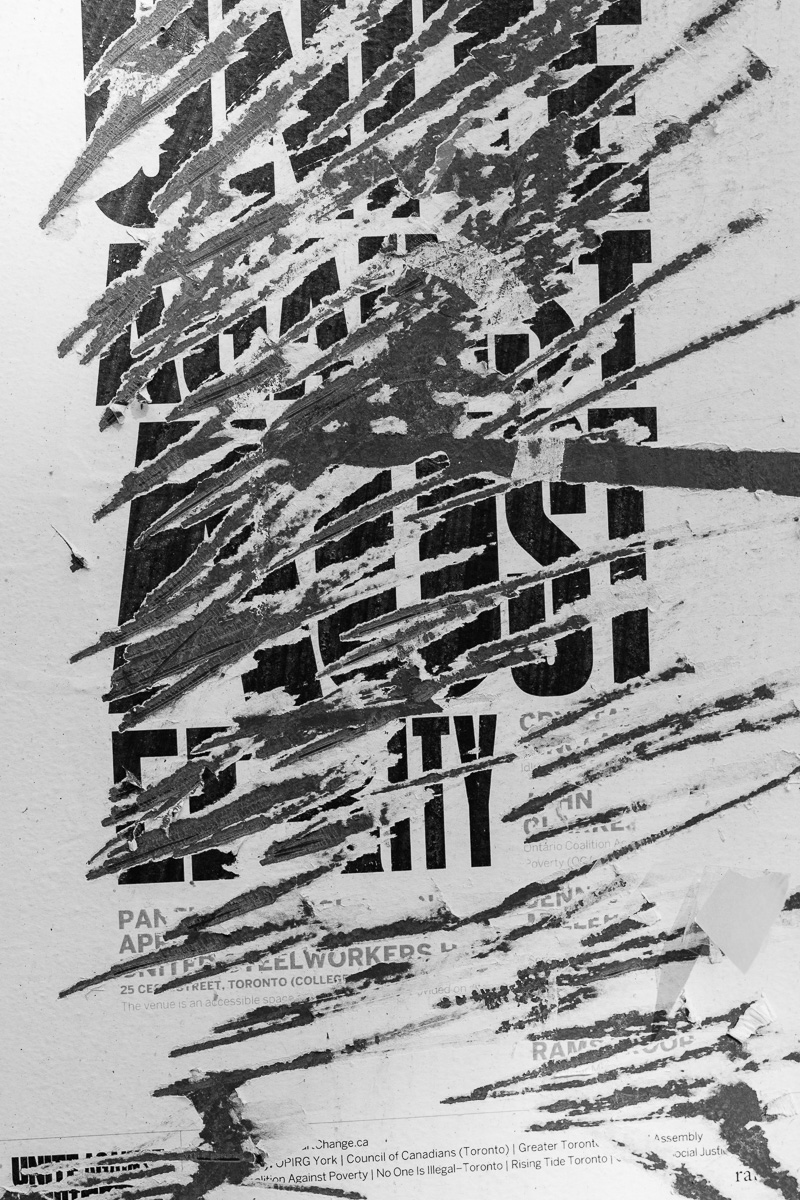John Beckham offers a short essay in Granta, “A Vacation From Myself“, which I take as anecdotal evidence in support of a claim I’ve been making for some time: mental health therapies (Wellbutrin in Beckham’s case) often come with a cost—a loss of the self—and we need to be more circumspect in the way we value such therapies. In a post that applied queer theory to mental health issues, I suggested that rather than seek out therapies, it might be preferable for those of us who struggle with mental health concerns to assert that fact as a matter of personal identity. I concluded by proposing a queer rallying cry: “I’m nuts; I’m here; get used to it!” We need to own our craziness.
Wondering aloud: do I have the right—obligation even—to demand that you accept my mental health (or lack of it) on my terms? Is the desire to apply therapies a symptom of your fear? Is your reluctance to deal with me when I’m unmedicated a function of your xenophobia? Fear of difference? I see a relationship between strict immigration policies, Proposition 8-style homophobic legislation, anti-begging by-laws, acceptable speech controls, and the pro-active management of those like me who manifest non-normative mental health. (Yes, I’m being deliberately euphemistic.) It’s my view that all these policies of social regulation are motivated by a fear of difference.
Fear is a powerful motivator, but it leads people to make outrageous claims. Just as some would claim that the gay “lifestyle” enables pedophiles, so others claim that the mentally ill are prone to violence. However, the facts don’t support either claim. The claims themselves are reductive ways of approaching complex issues. In the case of the mentally ill, we are far more likely to be victims than perpetrators of violence. Ironically, fear of violence leads people to do violence to us as a group.
I draw upon queer thinking for another reason, too. It wasn’t until 1973 that the Board of the American Psychiatric Association voted to remove “homosexuality” as a diagnostic category from its Diagnostic and Statistical Manual. Prior to that date, homosexuality was a mental illness. Even after that, until 1986, “ego dystonic homosexuality” remained on the books.
This has led me to wonder about the contingent nature of all our mental illness labels. Maybe it’s time to scratch depression from the list. It’s such a broad category in any event that it’s practically useless. There’s nothing wrong with sadness, is there? In fact, the only thing wrong with sadness is how often it reveals the hollow core of our world’s frenetic glossy empty happiness. To go further, when I read the headlines, I wonder if depression isn’t the only sane response to the world. Happy people are either ignorant or delusional. On such a view, depression stands almost as a prophetic accusation.
I could make a similar argument for bi-polar disorders. The flatness of our cultural hegemony discourages creativity. Pharmaceuticals allow the dominant (but boring) discourse or our age to assert itself without opposition. But unleash the wild creativity that flies between the highs and lows of a manic-depressive, and soon you have a cultural revolution on your hands that no amount of sober reflection could ever have sparked.
Why don’t we go further and remove all mental illness from the DSM? I think it would be far preferable simply to describe people as different and then embrace them. As the “homosexual” category has demonstrated, it’s one thing to internalize a socially mediated self-hatred; it’s quite another thing to have institutional verification that your self-hatred is justified. But now, after a generation without the stigma of psychological deviance, gays are beginning to exercise self-love, recognizing that “if this is just the way I am, then this is just the way I am.”
Maybe it’s time to expand the circle. Yes, I do foster a healthy self-hatred. And yes, I do believe a good measure of that self-hatred is socially mediated. And yes, because I can describe myself in terms defined by the DSM IV, I tend to think it’s official: I’m damaged and need fixing even though no amount of fixing has made a difference in 25 years. (Sounds like one of those gay therapy stories, no?) And then something interesting happens: the instant I make all these acknowledgments, I don’t feel so bad.
I’m nuts; I’m here; get used to it!
